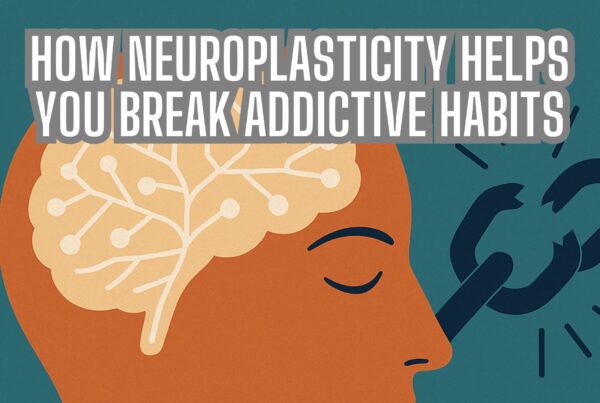Exploring the Psychological Connection Between People and Property
Delving into the Psychological Bond Between People and Property
Ever wondered why we form such profound attachments to our possessions? It’s intriguing to consider the deep psychological connection between people and property. This bond goes beyond mere ownership; it mirrors our identity and commemorates our experiences and memories.
In this exploration, we’ll dive into the intricate ties between individuals and their belongings. We’ll uncover the reasons behind these attachments and how they mold our lives and interactions.
The True Nature of Ownership
Ownership isn’t just a legal concept; it’s a mental state. When we possess something, it feels like an extension of us. This sentiment is deeply ingrained in our psyche, affecting how we view and engage with our surroundings.
The items we own aren’t just lifeless objects; they capture a fragment of our identity. They hold our memories, symbolize our accomplishments, and occasionally, they represent our hopes and dreams.
Emotions, Value, and Memories
An object’s worth isn’t always financial. Often, the emotional significance and memories linked to our possessions surpass their monetary value. A mere trinket can encapsulate a plethora of memories, turning into a treasured memento that links us to our past.
Such emotional bonds are potent, directing our actions and choices. They dictate how we relate to our belongings, making us cling to items with sentimental value, even if they lack practical utility.
Expressing Identity and Belonging
Our possessions reflect our essence. They act as platforms for self-expression, letting us flaunt our personality, passions, and principles. The attire we choose, the art we exhibit, and the vehicles we operate all echo our identity.
This self-expression isn’t solely about individualism; it’s about community. It aids us in finding our niche, connecting us with peers and groups that resonate with our beliefs and passions.
Dealing with the Psychological Impact of Loss
Losing a cherished item can be heart-wrenching. The emotional toll of such a loss transcends the item’s material worth; it feels like losing a piece of oneself. The sentiments and memories associated with our belongings render them irreplaceable, and their absence creates a void.
Coping with such loss is a path of self-realization. It tests our mettle and prompts us to reconsider our attachments, eventually leading to personal evolution and a more profound comprehension of our bond with our possessions.
Significance of Possessions in Relationships
Our belongings play a pivotal role in our relationships. They symbolize love, camaraderie, and dedication, forging a tangible bond between people. The act of gifting epitomizes how items gain meaning, reflecting the relationship between the giver and the recipient.
This exchange isn’t merely transactional; it conveys emotions and intentions. It fortifies relationships and crafts a shared narrative, enriching the emotional fabric of our ties with others.
Historical Perspectives: The Evolution of Ownership
The notion of ownership and our bond to possessions have evolved significantly over time. Various cultures and societies have had diverse perspectives on property, crafting the nuanced relationship between individuals and their belongings. From ancient civilizations valuing land to today’s emphasis on personal and intellectual assets, history offers a rich context to our understanding of ownership.
In many ancient cultures, possessions symbolized status, power, and identity. The emergence of trade and commerce amplified the importance of property, leading to the establishment of ownership laws. This historical lens illuminates our deep-rooted bond with possessions and its socio-cultural evolution.
Decoding the Mind: Theories on Attachment
Numerous psychological theories probe the reasons behind our attachment to belongings. The endowment effect, for instance, posits that ownership increases an item’s perceived value. This effect is evident in various situations, from our hesitance to relinquish belongings to our fondness for personalized items.
Another captivating theory is anthropomorphism, where we ascribe human traits to non-human entities, including our belongings. This tendency elucidates why we often form emotional ties with inanimate objects, viewing them as allies or extensions of our persona. Grasping these theories provides insights into the human psyche’s intricacies and its bond with property.
Modern Times: Technology’s Influence on Ownership
The advent of technology, especially social media and online platforms, has reshaped our perception of possessions. In today’s digital age, online personas and digital assets are crucial to our identity. We curate our online image, highlighting our interests, achievements, and possessions, merging the tangible and virtual realms.
Digital assets like cryptocurrencies, digital art, and online avatars have both monetary and emotional value, marking a new era in the psychological connection between people and property. Technology’s influence on this bond underscores human psychology’s adaptability and evolution.
Striking a Balance: Sustainability and Possession Attachment
The psychological bond between people and property prompts vital questions about sustainability and environmental conservation. In a world battling overconsumption repercussions, balancing attachment to possessions with mindful consumption is essential. Our emotional ties can sometimes lead to accumulation, challenging sustainable living ideals.
Reflecting on our attachment’s environmental impacts promotes a shift towards conscious consumption. By championing stewardship and prioritizing experiences over materialism, we can pave the way for a sustainable future while preserving a healthy bond with our belongings.
Real-world Impacts: Behavior and Decision Influences
The psychological bond between us and our possessions has profound real-world implications. This connection sways various behaviors and decisions, from buying choices to how we manage our belongings. Grasping the emotions driving these behaviors is vital for individuals and businesses alike.
A notable behavior is hoarding, where people find it hard to let go of their possessions, irrespective of their practical value. This behavior underscores the challenges of managing emotional bonds and the necessity for strategies to nurture healthier property relationships.
Overcoming Loss: Strategies for Coping
Losing a treasured item can be traumatic due to the emotional ties and memories linked to our belongings. Crafting effective coping strategies is vital for handling such losses and ensuring mental well-being. Recognizing the emotional toll and allowing oneself to mourn can aid the healing process.
Moreover, nurturing gratitude and focusing on the positive memories linked to the lost item can assist in coping. By building resilience and adopting a balanced view on attachment, we can tackle loss challenges and foster healthier bonds with our belongings.
The Significance of Our Belongings
Throughout life, our possessions remain by our side. They bear witness to our journey, encapsulating our highs and lows. The psychological connection between people and property is a captivating domain, unveiling our deep attachments and the myriad ways our belongings influence our existence.
This exploration encourages us to ponder our possessions’ significance and their role in shaping our identity and relationships. It’s a voyage of self-awareness, offering a glimpse into the human soul and the intricate web of emotions and experiences connecting us to our surroundings.
Release Hypnosis Melbourne Hypnotherapy
Since 2015, Lawrence Akers has operated under the name Release Hypnosis, offering Hypnotherapy and ACT-based services to Melbourne’s residents and online. Conveniently located on St Kilda Rd and accessible by the ANZAC station train and tram stop,
Release Hypnosis can assist with a plethora of issues. For those uncertain about hypnotherapy’s suitability, I provide a complimentary 30-minute discovery call.
Book Your FREE 30 Minute Consultation With Release Hypnosis NOW!
You may also like to read:
Discovering Purpose and Values: A Path to Mental Well-being
Can’t Visualise in Hypnosis? Here’s What You Can Do Instead.
Dealing with Financial Stress and Crisis: Finding Peace Amid Turbulence
What Is The Success Rate of Hypnosis?
Release Hypnosis Melbourne Hypnotherapy is accessible for people in: Abbotsford, Armadale, Albert Park, Balwyn, Bentleigh, Black Rock, Box Hill, Brighton, Brunswick, Bulleen, Bundoora, Camberwell, Canterbury, Carnegie, Caulfield, Chadstone, Cheltenham, Clayton, Coburg, Collingwood, Deer Park, Doncaster, Elsternwick, Eltham, Elwood, Epping, Essendon, Fairfield, Fitzroy, Footscray, Glen Iris, Glen Waverley, Glenhuntly, Greensborough, Hampton, Hawthorn, Heidelberg, Highet, Ivanhoe, Kew, Kooyong, Lalor, Laverton, Lower, Plenty, Macleod, Malvern, Middle Park, Moonee Ponds, Melbourne, Moorabbin, Mount Waverley, Murrumbeena, Northcote, Oakleigh, Ormond, Parkville, Pascoe Vale, Port Melbourne, Prahran, Preston, Richmond, Rosana, Sandringham, South Yarra, South Melbourne, Spotswood, St Albans, St Kilda, Surrey Hills, Templestowe, Thornbury, Toorak, Tullamarine, Williamstown, Yarraville, North Melbourne, Windsor, East Melbourne, Melbourne, Melbourne CBD, Melbourne 3004








